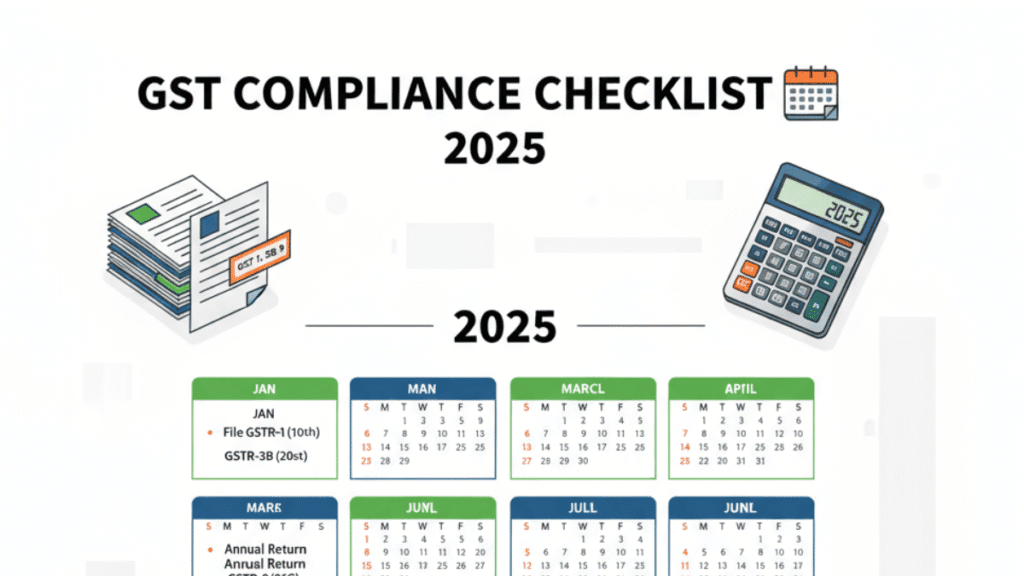Starting your investment journey doesn’t require a fortune. You can start SIP with 1000 rupees and build real wealth over time. This guide shows every Indian – from students to working professionals – exactly how to begin systematic investment planning with just ₹1,000 per month, following the latest rules, choosing the right mutual funds, and avoiding beginner mistakes. Start SIP with 1000 rupees is easier today than ever thanks to digital platforms, flexible schemes, and SEBI guidelines.
What is SIP? (Systematic Investment Plan)
SIP (Systematic Investment Plan) is a way to invest a fixed sum (like ₹1000) regularly in mutual funds, most commonly each month. SIPs use rupee cost averaging and the power of compound interest. Over time, even small amounts accumulate into a sizeable corpus, helping you meet financial goals – from buying a home, funding a child’s education, or securing retirement.
Benefits of SIP for Beginners:
- Accessible: Minimum investment often just ₹500-₹1000
- Flexible: Pause, modify, or step-up payments easily
- Disciplined: Instills a habit of saving and investing
- Compound Growth: Returns grow exponentially over decades
- Diversified: Choose equity, debt, hybrid, or ELSS schemes
Why Start with ₹1000 Rupees?
Investing ₹1000 every month may feel modest, but it's a potent strategy:
- India's leading funds allow SIPs from ₹100-₹1000, making it easy for anyone to start
- At 12% annualized returns, ₹1000/month SIP for 20 years can grow to over ₹7 lakh
- Discipline trumps amount; consistency builds wealth
- Ideal for beginners, students, salaried employees, and joint family budgeting
Stats:
- Average minimum SIP for top funds: ₹500-₹1000
- Large cap, multicap, hybrid funds commonly accept ₹1000 SIPs
Step-by-Step Guide: How to Start SIP with ₹1000
Step 1: Gather Documents (KYC Compliance)
- PAN Card
- Aadhaar Card linked to mobile
- Address proof (bank statement, utility bill)
- Photograph
- Active bank account
Step 2: Complete Your eKYC
- Visit mutual fund provider or app (Groww, Zerodha, Paytm Money, etc.)
- Fill KYC form, upload documents, verify OTP
- In-person verification may be required (quick digital option available)
Step 3: Choose the Right Platform
- Digital apps (Groww, Coin by Zerodha) – quick signup, easy interface, good for newcomers
- AMC Direct (like SBI MF, Kotak, ICICI) for direct plans, slightly lower expense ratio
- Bank portals (HDFC, ICICI, SBI) for trusted service
Platform Comparison Table
| Platform | Minimum SIP | Key Features | Ease of Use | Extra Cost | Step-up SIP |
|---|---|---|---|---|---|
| Groww | ₹500 | User-friendly, fast KYC | Excellent | None | Limited |
| Zerodha Coin | ₹1000 | Customization & tracking | Moderate | ₹50/year | Yes |
| Paytm Money | ₹100 | Smooth app, easy SIP set up | Excellent | None | Limited |
| AMC Direct | ₹100-₹500 | Lowest fee, direct plans | Moderate | None | Yes |
Start Trading with Zero Brokerage!
Join 950,000+ traders on India's fastest trading platform
Join Dhan Now →Step 4: Research and Select Mutual Fund Scheme
- Match fund type to risk appetite: Equity for growth, Hybrid for balance, Debt for safety, ELSS for tax saving
- Consider 3-5 year returns, expense ratio (best: 0.5%-1.5%), and AMC reputation
Step 5: Register and Set up SIP
- Sign up or log in to chosen app/platform
- Enter SIP amount (₹1000)
- Choose scheme and payment frequency (monthly recommended)
- Specify investment duration; select preferred SIP date (e.g., 5th of each month)
- Complete bank mandate (auto-debit through NACH, NetBanking, or UPI)
- Review and confirm details; get email/SMS confirmation
Step 6: Monitor and Review
- Track returns monthly via app/platform dashboard
- Use a SIP calculator to project future value and plan step-up or additional investments
- Evaluate performance every 12 months and rebalance if needed
Best Mutual Funds for ₹1000 SIP in India (2025)
Here's a curated list based on risk profile, historical performance, and expense ratio:
| Mutual Fund Name | Category | 3Y Return | 5Y Return | Minimum SIP | Expense Ratio | Risk Level |
|---|---|---|---|---|---|---|
| HDFC Flexi Cap Fund | Flexi Cap | 30.2% | 24.5% | ₹100 | 0.86% | High |
| Canara Robeco Small Cap Fund | Small Cap | 29.35% | 17.81% | ₹1000 | 0.47% | High |
| ICICI Prudential Focused Equity Fund | Focused | 26.54% | 24.89% | ₹100 | 0.59% | Very High |
| Aditya Birla Sun Life Value Fund | Value | 23.84% | 21.45% | ₹1000 | 1.02% | High |
| Kotak Equity Savings Fund | Hybrid | 13.17% | 12.89% | ₹100 | 0.66% | Moderate |
| Parag Parikh Flexi Cap Fund | Flexi Cap | 19.83% | – | ₹1000 | 0.75% | Moderate |
Comparison Table: Features & Options
| Feature | Groww | Zerodha Coin | SBI MF Direct | HDFC MF Direct |
|---|---|---|---|---|
| Minimum SIP | ₹500 | ₹1000 | ₹500 | ₹100 |
| User Interface | Modern | Advanced users | Classic | Simple |
| Step-Up SIP | App-specific | Yes | Yes | Yes |
| Direct Plan Available | Yes | Yes | Yes | Yes |
| Auto-Debit (NACH/UPI) | Yes | Yes | Yes | Yes |
| Customer Support | Chat/email | Branch/Call | Call | |
| Compliance | Full | Full | SEBI/AMFI | SEBI/AMFI |
Tax Benefits, KYC, and Regulations
Indian Tax Law:
- ELSS funds allow up to ₹1.5 lakh Section 80C deduction (3-year lock-in)
- Long term capital gains (>12 months, equity): Taxed at 10% (beyond ₹1 lakh gain annually); short term at 15%
- Debt funds: LTCG taxed at 20% with indexation after 3 years
KYC Requirements:
- PAN, Aadhaar, address proof
- One-time process for all SIPs via AMC/KRA
- Digital eKYC available via major apps
SEBI/Regulatory Updates:
- SEBI mandates transparent scheme naming, tighter equity/debt thresholds
- Funds must disclose risk and expense ratio upfront
- Nomination required, up to 10 nominees allowed per fund
Common SIP Mistakes Beginners Should Avoid
- No specific goal: Invest with clear purpose (retirement, child’s future).
- Wrong fund choice: Match risk profile, don't just chase returns
- Pausing SIPs during downturns: Stay consistent for rupee cost averaging
- Inappropriate amount/tenure: Start with what you can afford, stick for longer horizons
- Ignoring expense ratio: High fees erode returns, pick schemes <1.5%
- Not reviewing SIP: Monitor performance annually, rebalance portfolio as needed
- Over-diversification: 3-5 funds sufficient for most beginners
- Timing the market: Consistency beats market timing
- Not aligning SIP with financial needs: Budget for joint family or festival spending
Practical Example & Case Study
Assume:
- Monthly SIP: ₹1000
- Duration: 20 years
- Average annual return: 12%
FAQs (Structured Data JSON-LD included below)
Frequently Asked Questions
Q1. Can I start SIP with just ₹1000 in India?
Yes, most major AMCs and platforms let you start SIPs from ₹500 to ₹1000 per month. It’s accessible for beginners and budget-friendly.
Q2. What is required for KYC to start an SIP?
You need PAN, Aadhaar linked to a mobile, address proof, and a recent photo. This is a one-time step for all mutual fund investments.
Q3. What are the best funds for ₹1000 SIP?
Top options include HDFC Flexi Cap, Canara Robeco Small Cap, ICICI Focused Equity, Aditya Birla Sun Life Value Fund, Parag Parikh Flexi Cap.
Q4. Can I stop/pause/modify my SIP?
Most platforms and AMCs allow you to pause, modify, or step-up your SIP amounts anytime without penalty.
Q5. What tax benefits do I get with SIP?
Investing in ELSS mutual funds via SIP offers up to ₹1.5 lakh deduction under Section 80C. Long-term capital gains in equity funds are taxed at 10%, only above ₹1 lakh gains per year.
Q6. Is ₹1000 SIP enough to reach my goals?
For long-term goals, regular ₹1000 SIPs can build a large corpus due to compounding; review every year and increase amount as income grows.
Q7. Which platform is best for ₹1000 SIP?
Groww and Paytm Money offer the lowest minimum SIPs and simplest user experience. Zerodha Coin is suited for more advanced users requiring customized SIPs.
Conclusion
Starting a SIP with just ₹1000 rupees is the best way to build wealth consistently in India today. The process is simple, fully digital, and backed by SEBI, RBI, and IRDAI guidelines. Choose your funds wisely, match them to your goals, and avoid common mistakes. Take action now:
- Use a SIP calculator to plan
- Compare mutual funds for your goals
- Consult a financial advisor for personalized strategies
- Subscribe for more insightful investment guides at moniwise.in
- Comment below with your SIP journey or questions!
Ready to start your SIP journey? Click “Calculate Now” or “Compare Plans” to begin building your financial future – one ₹1000 step at a time!
External sources for credibility:
Disclaimer:
The information provided in this article is for educational and informational purposes only and should not be construed as financial advice or a direct recommendation to invest. Investments in mutual funds and other financial instruments carry risks, including the potential loss of principal. Past performance is not indicative of future results. We strongly recommend that you thoroughly research and consider your own financial situation, risk appetite, and investment objectives before making any investment decisions. It is advisable to consult a qualified financial advisor or professional for personalized guidance tailored to your individual circumstances. Neither the author nor the platform accepts any responsibility for any loss or damage resulting from the use of this information.



